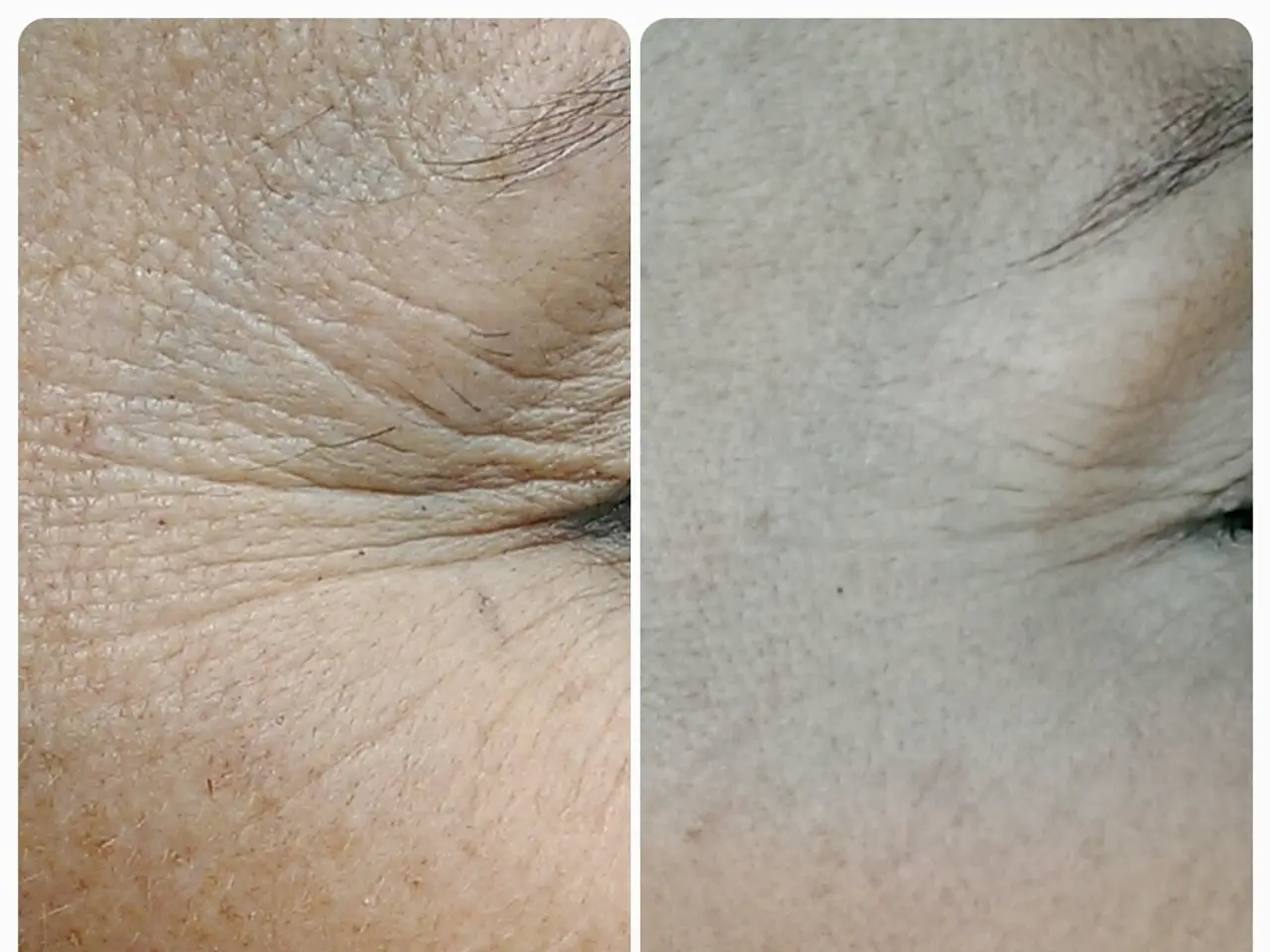Consulting a dermatologist for acne management: Timing and methods of assistance provided
Adult acne can be a persistent and distressing condition, affecting many individuals' quality of life. However, help is available from dermatologists who specialise in treating this common skin concern.
Reasons for Seeking Dermatological Care
Adults often seek dermatological care due to various reasons:
- Persistent Breakouts: If over-the-counter treatments fail to control acne, a dermatologist can provide more effective treatments tailored to the individual's skin type and condition.
- Skin Discoloration or Scarring: Dermatologists offer treatments like chemical peels or laser therapy to address these long-term effects of acne.
- Hormonal Changes: Hormonal fluctuations can trigger acne, and dermatologists can prescribe hormonal treatments to manage these types of breakouts.
- Complex Causes: A dermatologist can help identify and address underlying factors contributing to adult acne, such as stress, diet, and the use of comedogenic products.
- Frustration and Concern: Many adults seek dermatological care due to frustration and concern over their acne. A dermatologist can provide reassurance and implement a personalised treatment plan to improve skin health.
- Preventive Care: Early consultation with a dermatologist can prevent further complications and emotional distress associated with acne.
Treatment Options
A dermatologist may recommend a variety of treatments, including:
- OTC Topical Products: Benzoyl peroxide and salicylic acid are examples of over-the-counter topical products that a dermatologist may recommend for acne treatment.
- Prescribed Medications: Oral antibiotics like minocycline and oral retinoids, such as isotretinoin (Accutane), can be prescribed to help reduce inflammation and prevent acne from forming and causing scars.
- Therapies: Corticosteroid injections, chemical peels, light therapy, and microneedling are examples of therapies a dermatologist may use to treat acne.
- Financial Considerations: Discussing financial options with a dermatologist can help individuals find affordable treatment options, such as payment plans or generic versions of medications.
Finding a Qualified Dermatologist
It's essential to choose a fully qualified dermatologist certified by the American Board of Dermatology, the American Osteopathic Board of Dermatology, or the Royal College of Physicians and Surgeons of Canada. The American Academy of Dermatology provides a Find a Dermatologist tool for searching for qualified dermatologists in a person's area.
When to Seek Help
Adolescents should see a dermatologist if their acne affects their mental health, is severe, or is causing scarring or pigmentation. Adult women are more prone to acne than men. Medication can also cause acne, so it's essential to inform a dermatologist of all prescribed medication.
A dermatologist will decide on a treatment plan based on various factors, including age, medical history, and acne type and severity. Medical insurance may cover dermatological treatment if the treatment is deemed medically necessary. Hormonal agents, such as the pill, can also be prescribed by a dermatologist to reduce oil production in the skin.
In conclusion, seeking dermatological care for adult acne can provide relief and improve both physical and emotional well-being. With a variety of treatment options available and qualified dermatologists ready to help, there's no need to suffer in silence.
Dermatologists also offer mental health support for individuals coping with the distress caused by acne. (mental-health)
Skin-care regimens incorporating dermatologist-recommended products may aid in preventing acne and maintaining skin health alongside medical treatments. (health-and-wellness)
During consultations, dermatologists may also address concerns regarding improving skin texture and reducing scarring, such as through the use of laser resurfacing treatments. (scars)




